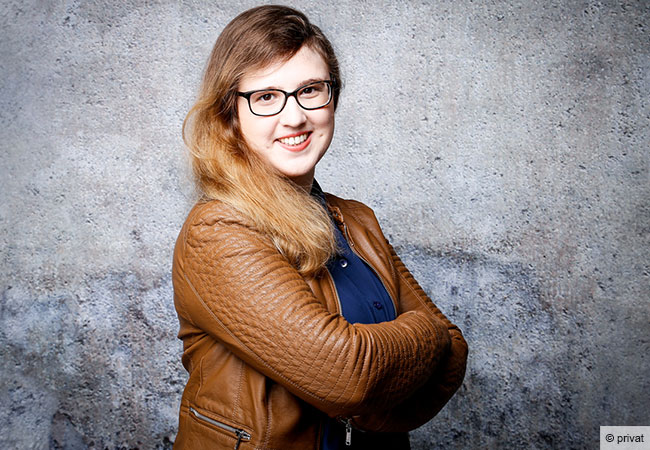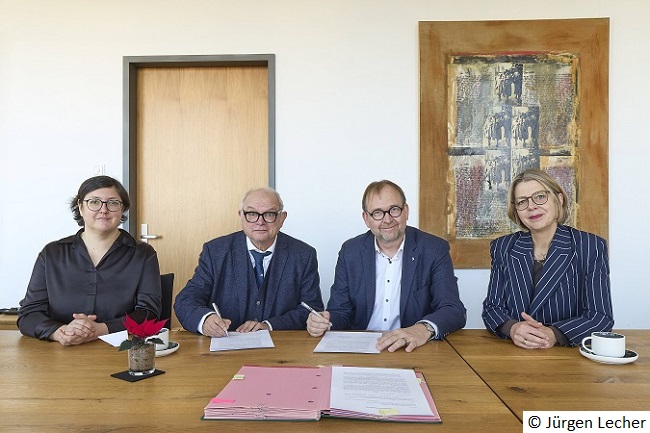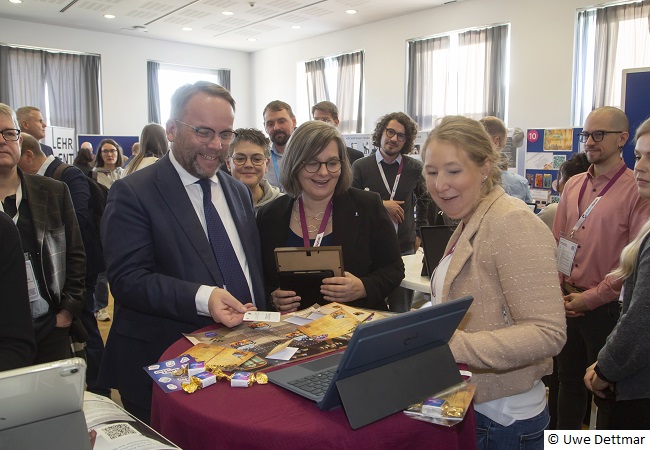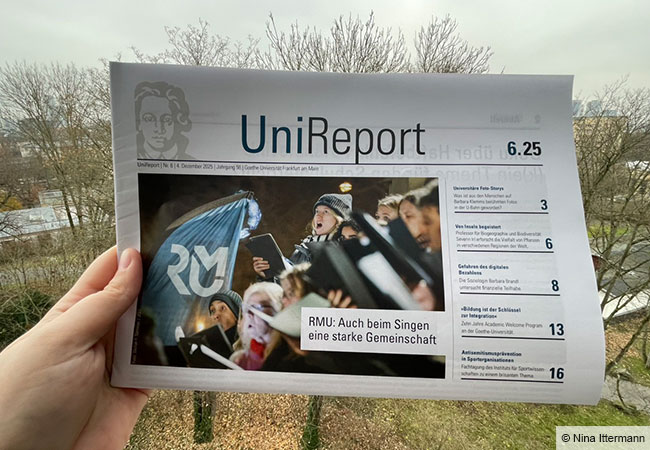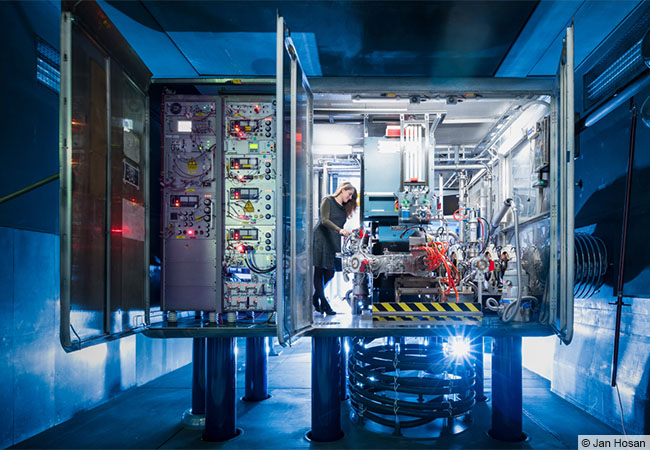 Once again, researchers at Goethe University were successful in the competition for the prestigious starting grants from the European Research Council (ERC): Dr Christian Münch from the Institute of Biochemistry II at the Faculty of Medicine, and Dr Iris Idelson-Shein from the Seminar for Jewish Studies and the Martin-Buber Chair for Jewish Thought and Philosophy, each received an “ERC Starting Grant.” In this program, the ERC supports excellent researchers in the first five years of their independent careers with a total of 1.5 million euro.
Once again, researchers at Goethe University were successful in the competition for the prestigious starting grants from the European Research Council (ERC): Dr Christian Münch from the Institute of Biochemistry II at the Faculty of Medicine, and Dr Iris Idelson-Shein from the Seminar for Jewish Studies and the Martin-Buber Chair for Jewish Thought and Philosophy, each received an “ERC Starting Grant.” In this program, the ERC supports excellent researchers in the first five years of their independent careers with a total of 1.5 million euro.
Dr Christian Münch is a biochemist and studies mitochondria, which produce energy for cells. There are up to 2,000 of these tiny power plants in each cell of the body. They are subject to strict quality controls in order to ensure faultless functioning. Christian Münch is particularly interested in a mechanism that is turned on upon misfolding of mitochondrial proteins – known as the “unfolded protein response.” The molecular details of this stress response are poorly understood to date, especially in humans; particularly in regards to its effects on mitochondria themselves and on other areas of cells or neighbouring cells. What signals are prompted by the stress responses and how these are regulated are equally unknown. Christian Münch wants to investigate these open questions.
This project, now supported by the European Research Council, is also highly relevant from a bio-medical perspective. “In numerous diseases, including major diseases like cancer or neurodegeneration, the functioning of the mitochondria is disrupted. In some cases, misfolded mitochondrial proteins are directly responsible for the clinical picture,” explains Christian Münch. Of particular interest to the young researcher is the question of how already-stressed cells communicate with their environment. “I’m convinced there are overarching systems that coordinate the various quality control mechanisms and warn neighbouring cells of imminent danger.” With the ERC project, he hopes to make pioneering discoveries in this area.
Christian Münch has headed an Emmy-Noether research group at the Institute of Biochemistry II at the Faculty of Medicine of the Goethe University since December 2016. Before that he was a postdoctoral fellow at Harvard University in Boston (USA). He obtained his PhD at the University of Cambridge in England in 2011.
Formative translations in Jewish garb
The project of the historian Dr Iris Idelson-Shein deals with Jewish texts that came about as translations from other languages from the sixteenth century to the early nineteenth century. These translations played a crucial role in shaping the culture, literature and history of European Jews in the early modern period. Most Jews in this period were unable to read texts in non-Jewish languages, so that their access to European cultural developments depended almost completely on these kinds of translations.
While translations have been met with great interest by historians of European history in recent decades, they have been largely neglected by historians of early modern Jewry. “So far, no attempt has been made to investigate the totality of Jewish translations in the early modern period,” states Iris Idelson-Shein, ”so that their scope, geographic distribution, development, and sources are largely unknown.”
This scholarly lacuna stems, in part, from the daunting nature of this wildly versatile literature, which drew on sources in different languages, from different genres, spaces and periods. In addition, Jewish authors often presented their translations as original work in order to cloak them in Jewish garb. To approach this rich and deceptive body of texts requires a great familiarity with various literary systems (Jewish and non-Jewish), the command of several languages, and a combination of historical, literary, cultural and other research methods. Idelson-Shein will therefore recruit a multi-lingual and interdisciplinary group of young researchers. The goal is to identify the non-Jewish body of texts that were formative in creating modern Judaism.
Iris Idelson-Shein studied history and philosophy at Tel Aviv University and received her doctorate there in 2011. She is now a research associate at the Martin-Buber Chair for Jewish Thought and Philosophy, and visiting lecturer at the Seminar for Jewish Studies at Goethe University.
[dt_call_to_action content_size=“small“ background=“fancy“ line=“true“ style=“1″ animation=“fadeIn“]
Further information: Dr Christian Münch, Institute for Biochemistry II, Faculty of Medicine, Niederrad Campus, Tel.: +49 (0) 69 6301 6599, muench@biochem2.de | Dr Iris Idelson-Shein, Seminar for Jewish Studies / Martin Buber Chair for Jewish Thought and Philosophy, Faculty of Protestant Theology, Westend Campus, Tel. +49 (0) 69 798-22677, iris.idelson@gmail.com
[/dt_call_to_action]


